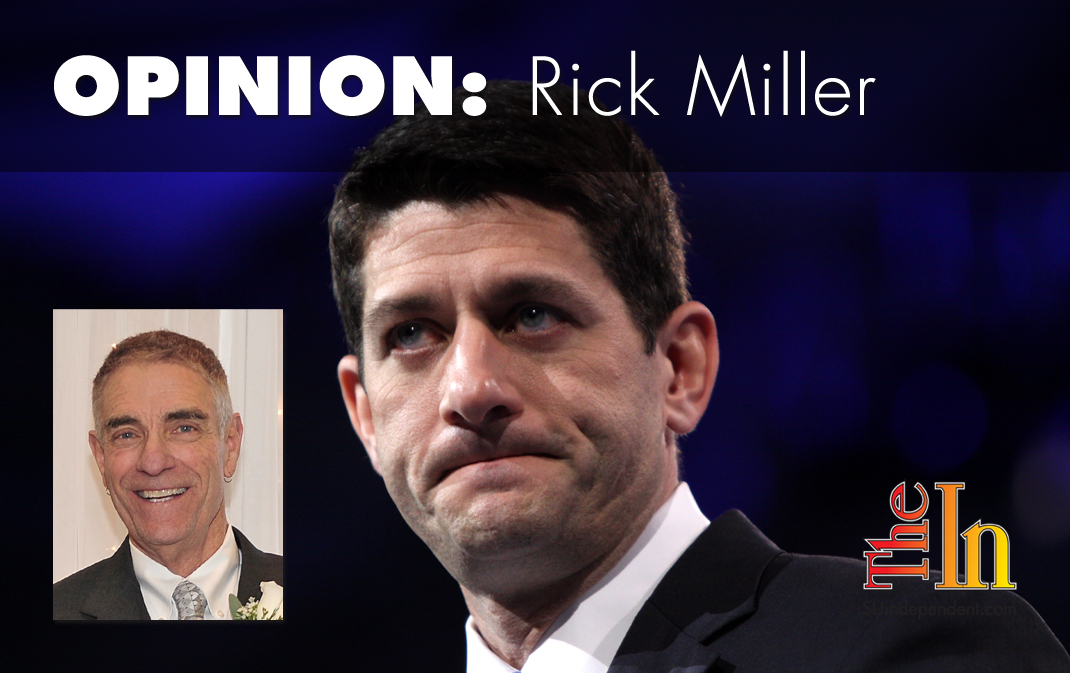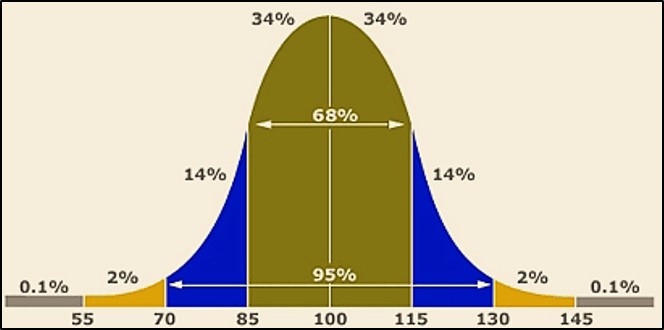
Congressman Paul Ryan: A matter of awareness?
Congressman Paul Ryan Jr. (R-Wisconsin), Speaker of the House of Representatives, wrote and almost immediately deleted a tweet about the recent tax law Feb. 3:
“A secretary at a public high school in Lancaster, PA said she was pleasantly surprised her pay went up $1.50 a week…she said (that) will more than cover her annual Costco membership for the year.”
That tweet was almost immediately deleted by Ryan, apparently after receiving a significant number of negative twitter comments.
In stark contrast (from Snopes.com):
“On 16 November 2017, under the leadership of House Speaker Paul Ryan, the United States House of Representatives passed their version of what would later become the sweeping GOP tax reform bill of 2017. Thirteen days later, Charles and Elizabeth Koch donated $247,000 apiece to Paul Ryan’s fundraising campaign, ‘Team Ryan,’ according to filings published by investigative journalism outfit ProPublica.”
How can we explain such an apparent disconnect in awareness by Ryan? Well, consider the following comments.

Note the two images of two Caucasian humans living in the United States, yet there appears to be an almost unbridgeable gap between them. My purpose here is not to disparage Tony Thomas but rather to consider his apparent current life situation in comparison with the attitudes and policies promoted by Ryan in his powerful political position as Speaker of the House of Representatives for the United States Federal Government.
Without any detailed information about Thomas but simply going by his image and the charges against him reported on the news, it would be reasonable to assume that he has not had very many advantages (the current so-called “white privilege” during his lifetime). Ryan, however, has had a lifetime history of nothing but “white privilege.” These two men have most definitely followed different pathways!

Paul Ryan was raised in the Catholic religion, attended Catholic parochial schools, and is currently a practicing Catholic. He has a strong and perhaps borderline compulsive belief in a personal intense physical fitness regime and maintaining a healthy diet. He has been interested in positions of authority and power since his high school days. Ryan has a bachelor’s degree in economics and political science from Miami University in Oxford, Ohio. He has an interest in the writings and libertarian/objectivist philosophy of Ayn Rand combined with a strong and rigid religious morality. He is quite well off financially, with a reported net worth of over 7 million dollars. He has a very conservative fiscal and social outlook.
According to various sources (further details later):
—Ryan believes federal poverty reduction programs are ineffective; he supports cuts to welfare, child care, Pell Grants, food stamps, and other federal assistance programs.
—Ryan supports block granting Medicaid benefits to the states and the privatization of social security and Medicare. Additionally, he supported the Medicare Part D prescription drug benefit and opposed the Patient Protection and Affordable Care Act (ACA), also known as “Obamacare.”
—Ryan supported the Trump Administration American Health Care Act of 2017 (AHCA), which was the failed 2017 House Republican plan to repeal and replace the ACA.
In 2012, The New York Times wrote that Ryan was “his party’s most forceful spokesman for cutting entitlement spending.” There is no current indication that he has changed his position on this.
Considering his personal values and beliefs and his public policy proposals, it seems Ryan has some interesting personality conflicts. He does have a university education, and considering his degree fields of economics and political science it is likely that he was introduced to the concept of statistics, which would include learning about bell curves, such as that for IQ (image below). Presuming this, we have two possibilities to consider:
—He is ignorant about the social significance and implications of this IQ curve.
—Or he is aware of the social significance and implications of this IQ curve, but for some reason or reasons, perhaps because of his libertarian views and his belief in Catholicism, he chooses to ignore these statistics when determining public policy.
Example of a standard bell curve of IQ distribution for the population of the United States (around 320 million people). Based on this graph, approximately 16 percent of the population has an IQ of 85 or less. That calculates out to a bit over 51 million people whose intelligence is below average or mildly to severely mentally challenged.
If we consider the bell curve above, it becomes evident that within our technologically driven society, there are a very large number of people (over 51 million) who may not possess the mental skills to successfully survive, let alone actually thrive. To this number must be added the number of people who are physically or mentally challenged or incapacitated. The Department of Commerce and the US Census Bureau estimate that about 10 percent of Americans (or about 32 million) have some form of moderate to severe disability.
Disability and percent employed
Difficulty hearing: 64.4 percent
Difficulty seeing: 43.7 percent
Mental disability: 41.3 percent
Difficulty walking: 33.5 percent
Employment statistics: 77 percent of those with a non-severe disability and only 26 percent of those with a severe disability are employed.
Of these two groups of Americans with low to challenged IQs and those with some type of disability, which are not necessarily mutually exclusive, what are their opportunities for education? What are their opportunities for employment in jobs paying a livable wage? What are their opportunities for receiving healthcare or other care-giving services? And finally, what are their chances of understanding and successfully surviving in the rapidly evolving technological and information age in which we live?
The question then arises: What do we as a society do to help these people who clearly make up a significant percentage of our population? Do we ignore them, or do we provide help and support for them?
A major step toward helping these people was the passage of the anti-discrimination Americans with Disabilities Act, which was signed into law by President George H. W. Bush in 1990. Another major step was the passage of the Affordable Care Act under President Barack Obama in 2010. Furthermore, the existence of Medicaid and Medicare, along with Social Security programs, have helped countless people in this country, particularly those in need such as the elderly, the disabled, and so on.
This brings us to a question of belief systems. Fiscally and socially, there are three main belief systems operating in the United States: libertarianism/objectivism, conservatism, and progressivism. Almost all social safety net programs currently in existence have been introduced by progressive-thinking people (including republicans and democrats). Some of these programs include Social Security, Medicare, Medicaid, food stamps, unemployment benefits, various welfare programs, Affordable Care Act (Obamacare), and other programs. Of course, most of these programs have to be paid for by taxpayers, and therein lies a problem.
Complaints about these federal assistance programs include everything from that they are entitlement programs which are increasing the national debt, that they produce a never-ending dependency on government handouts, that they foster lazy people unwilling to work, that there are too many people are scamming these programs, and the attitude of “Why should I have to pay for someone else’s problem?” Unfortunately, most all of these complaints are valid to some degree. Nonetheless, they all miss the point. If we are not willing, as a presumably free society, to support the more unfortunate among us, even though some do scam the system, what does that say about our quality of compassion, altruism, and empathy — which traits presumably set us apart as human beings from other living organisms? Equally importantly, what then is to be the fate of these tens of millions of people? Do we just let them live miserable, meaningless lives, which unfortunately many already do, or do we just let them die? Furthermore, if this became a prevalent attitude in the country, what would it do to the social and moral fabric of our society?
This brings us back to Paul Ryan. As a very high-ranking politician in the federal government with a college education, and an apparently strong religious background, why is he so strongly committed to taking federal government support and benefits away from the less fortunate members of our society? His attitudes and efforts towards reducing and/or removing these socially critical federal programs do not indicate a man with empathy or compassion towards his fellow human beings.
Consider also that he is a republican and supports decreasing federal government aid programs and shifting the burden of these programs to state governments or to for-profit private companies. It is a bit ironic that his proposed reductions in federal aid programs, and presumably shifting the burden of such aid programs to the individual states, would tend to negatively impact more people living in republican-dominated (red) states and in rural areas to a greater degree than those living in democratic-dominated (blue) states.
Ryan could perhaps be considered the poster child for government dependence. As an adult, he worked only one year in the private sector for his family’s business, which perhaps ironically profited from numerous federal government contracts. He went to college using the Social Security survivors benefits he received from his father’s untimely death until his 18th birthday, which helped pay for his education at Miami University in Ohio. We also now pay his significant government salary and benefits, and these very lucrative benefits will continue until his death. Yet he seems to be strongly opposed when anyone else in the public sector who might be less well-off, or in serious trouble, needs government support.
Further specific information on what Ryan thinks about various federal government programs (from Wikipedia):
“Ryan supports eliminating the capital gains tax, the corporate income tax, the estate tax, and the Alternative Minimum Tax. In 1999, Ryan supported the Gramm–Leach–Bliley Act, which repealed some financial regulation of banks from the Glass–Steagall Act of 1933. During the economic recovery from the Great Recession of the late 2000s, Ryan supported the Troubled Asset Relief Program (TARP), which authorized the Treasury to purchase toxic assets from banks and other financial institutions, and the auto industry bailout; Ryan opposed the Credit CARD Act of 2009, which expanded consumer protections regarding credit card plans, and the Dodd–Frank Wall Street Reform and Consumer Protection Act, which strengthened financial regulation.”
“Ryan believes federal poverty reduction programs are ineffective and supports cuts to welfare, child care, Pell Grants, food stamps, and other federal assistance programs. Ryan supports block granting Medicaid to the states and the privatization of social security and Medicare. Ryan supported the Medicare Part D prescription drug benefit and opposes the Patient Protection and Affordable Care Act (ACA), also known as ‘Obamacare.’ Ryan supported the American Health Care Act of 2017(AHCA), the House Republican plan to repeal and replace the ACA, which passed the House on May 4, 2017.”
“Ryan is pro-life and opposes abortion rights. Ryan opposed the Lilly Ledbetter Fair Pay Act of 2009, which bolstered women’s rights to equal pay for equal work. Ryan supports civil unions and opposes same-sex marriage. Ryan supports school vouchers, and supported the No Child Left Behind Act in 2001 and its repeal in 2015. Ryan is unsure, and believes climate scientists are unsure, of the impact of human activity on climate change. Ryan supports tax incentives for the petroleum industry and opposes them for renewable energy. Ryan supports gun rights and opposes stricter gun control. Ryan supported the wars in Iraq and Afghanistan.”
Another interesting aspect of Paul Ryan political, social, and moral ideology is his views on gun control. I note from his biographical information that he has three children, and I wonder if they are attending or attended either public schools or parochial schools. Which type of schools they attended may have a bearing on the following. Consider his latest interview comment about the public high school killings in Florida, as reported by Yahoo News Feb. 16: “We don’t just knee jerk before we even have all of the facts and the data.” His comment is essentially similar to previous comments he has made after other school related mass shootings within the past three years. I also wonder how this attitude reflects his apparently strong religious belief that abortion should be outlawed because it supposedly kills children. Perhaps his reluctance to condemn these killings and propose some measure to control or prevent them is related to the possibility that his children are not or were not in danger from such killings due to the school environment they experienced. Additionally, his attitudes may be related to his financial situation. As a member of Congress, Ryan received $177,000 in campaign contributions from the NRA during the 2016 election cycle. That works out to his earning $10,410 for each of the seventeen students and faculty killed in the Parkland Florida school shooting of February 2018.
So to conclude, let’s return to our brief comparison of Tony Thomas and Paul Ryan Jr. It is reported that Thomas is accused of killing his wife in January. If this is true, that would make him perhaps a premeditated killer of another human being. If convicted, he will likely spend many or all of his remaining years in prison, and ironically public taxpayers will be paying for his upkeep (another form of entitlement!). To perhaps stretch a point, Ryan seems to be promoting and following ideological and social concepts which, if implemented, have to potential to kill a great many human beings. Can his actions and words also be considered a form of premeditated murder?
Internet references:
https://en.wikipedia.org/wiki/Paul_Ryan
https://en.wikipedia.org/wiki/Political_positions_of_Paul_Ryan
https://www.yahoo.com/news/paul-ryan-collected-500-000-022332940.html
https://www.census.gov/prod/3/97pubs/cenbr975.pdf
https://www.snopes.com/kochs-contributed-ryan-after-tax/
https://www.yahoo.com/news/paul-ryan-video-mashup-3-041231274.html
The viewpoints expressed above do not necessarily reflect those of The Independent.
Articles related to “Congressman Paul Ryan: A matter of awareness?”
How to submit an article, guest opinion piece, or letter to the editor to The Independent
Do you have something to say? Want your voice to be heard by thousands of readers? Send The Independent your letter to the editor or guest opinion piece. All submissions will be considered for publication by our editorial staff. If your letter or editorial is accepted, it will run on suindependent.com, and we’ll promote it through all of our social media channels. We may even decide to include it in our monthly print edition. Just follow our simple submission guidelines and make your voice heard:
—Submissions should be between 300 and 1,500 words.
—Submissions must be sent to editor@infowest.com as a .doc, .docx, .txt, or .rtf file.
—The subject line of the email containing your submission should read “Letter to the editor.”
—Attach your name to both the email and the document file (we don’t run anonymous letters).
—If you have a photo or image you’d like us to use and it’s in .jpg format, at least 1200 X 754 pixels large, and your intellectual property (you own the copyright), feel free to attach it as well, though we reserve the right to choose a different image.
—If you are on Twitter and would like a shout-out when your piece or letter is published, include that in your correspondence and we’ll give you a mention at the time of publication.



